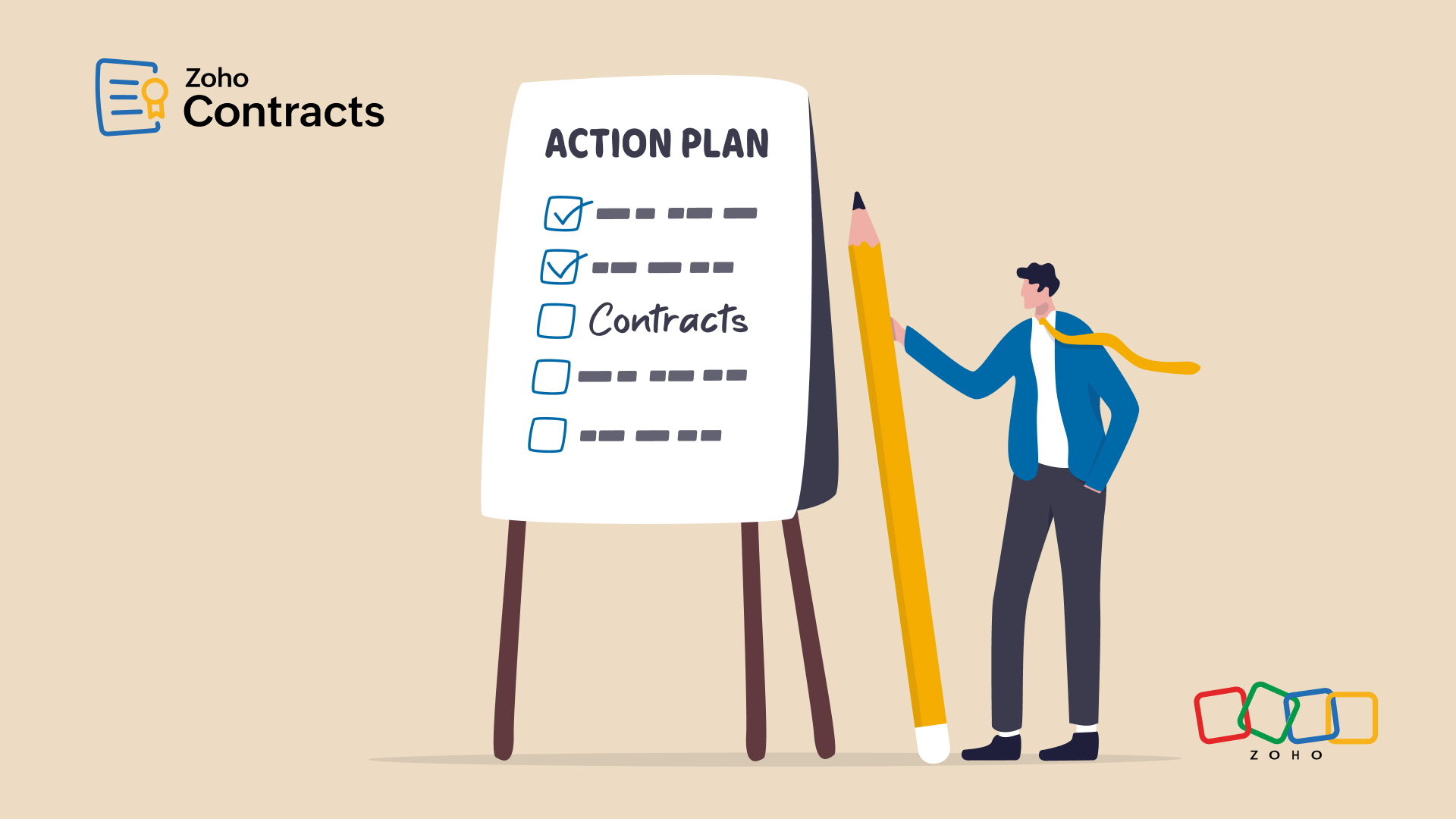Seven working strategies to help you successfully transition into enterprise sales
- Last Updated : September 9, 2024
- 321 Views
- 7 Min Read

The global software-as-a-service (SaaS) market is divided into three major business segments:
Small businesses which consist of up to one hundred employees and $50 million in revenue.
Mid-market or medium-sized businesses that have an employee count between 101 and 999, with revenue between $50 million and $1 billion.
Enterprise businesses with more than 1,000 employees and revenue exceeding $1 billion.
Source: Gartner
Of these three segments, enterprise businesses hold a major share of the global market, with global enterprise software businesses estimated at USD $201 billion in 2022 and projected to hit around USD $610 billion by 2032, as well as poised to grow at a CAGR of almost 12% during the forecast period from 2023 to 2032.
With the increase in large-scale enterprise corporations' demand for technology, there's been a significant increase in the number of software solution providers, too. Sellers, specifically from small and mid-market business segments, are keen on scaling up their products and shifting focus to the enterprise sector due to the long-term benefits enterprise sales have for their company's brand and revenue.
However, small and mid-market sellers shifting to the enterprise business segment experience reluctance and difficulty in selling to large organizations due to their long sales cycles (sometimes taking months for deals to close), complex custom requirements, and risky implementations.
Because of this complexity, many of the most common selling strategies small and mid-market sellers use often don't work.
In this blog post, we'll address seven effective selling techniques that small and mid-market sellers can use to close large deals and transition seamlessly into enterprise sales.
Position your product
Enterprise prospects research extensively before inquiring about your product, including looking into your company's marketing materials to see if your product fits their needs. To capture their attention, you should detail your product offerings, differentiate it from competitors, and demonstrate its usefulness from an enterprise customer's perspective.
Your marketing material must include compelling case studies and be clear about cost savings, data security, scalability, flexibility, and compliance.
Also, speaking about your client base, your company's mission statement, and goals will send a message to enterprise buyers that you're an ideal solution provider.
Talk about the future
The user base in enterprise organizations is vast compared to small and mid-sized businesses, which demands long-term planning and an execution strategy.
When an enterprise prospect enters your sales pipeline, instead of focusing on individual feature lists, talk about the product implementation process that's going to occur after the purchase. Give your prospects a solid plan about product training, customization, usage adoption, post-purchase support, and faster ticket resolutions.
To eliminate any room for product rigidity, you should also describe how your product can scale with the industry's current demands. Enterprise customers value versatile and expandable products that grow with their company.
You can further involve senior sales persons along with the pre-sales team, support team, implementation team, and other relevant persons who are going to assist them through the purchase and post-purchase journey. This gives an understanding that your team is dedicated and has vision, leaving no room for skepticism.
Create a buyer persona
Small and mid-sized business buyers often do somewhat basic research before making purchases, whereas enterprise buyers comparatively do much more and have a lot of questions at every stage of the sales process.
You can deal with this by preparing your team via a training module that focuses on large enterprises, their industry presence, user base, account information, and expectations of solution providers. In short, create an enterprise buyer persona.
Once you've developed a buyer persona, you should look into likely questions that an enterprise prospect would ask and possible objections they may raise, and prepare a set of convincing answers. This will help prepare your team to handle objections effectively.
Of course, you can't anticipate every question prospects will ask, but doing the prep work will put you in a better position to handle unexpected objections. This is possible with the help of senior sales representatives with experience or colleagues who have worked in similar industries or domains.
Suggested read: How to stay on top of sales
Establish connections with the right decision-makers
Decision-makers are spread across different departments and levels in large-scale businesses, unlike small and mid-market buyers, who have comparatively fewer. During a demo call or discussion with an enterprise prospect, connecting to the right people like CFOs, CTOs, CEOs, or any key department stakeholders in the organization is crucial since only these key decision-makers can move the deal forward. Identifying and dealing with these individuals saves time and avoids having to repeat explanations and meetings.
But it also goes both ways: Enterprise buyers often like to connect directly with the CEO or individuals with the same level of responsibility in your company, since they're going to invest huge amounts of money over the long term. As large-scale enterprise deals require a lot of trial and error, consistency, and effort, your company's top leadership involvement will help move the deal forward.
Use an enterprise-ready CRM software tool
A company that uses its CRM well can manage and plan its sales more effectively. From making the initial sales call to winning the deal, you need to have an enterprise-level tool that enables a smooth enterprise sales process.
Hence, it's ideal to have a CRM that can handle huge volumes of data and facilitate lead management, contact management, account management, deal management, multichannel follow-ups, and multiple sales pipelines. The tool should also be flexible and integrate with popular applications for enhanced communication and coordination.
A centralized CRM with all of the above properties will give you a comprehensive picture of each deal's progress, and can help you stay updated and connected with all your prospects to provide a smoother customer experience.
Do a detailed account analysis
As soon as you get an enterprise lead that has the potential to turn into a customer, you should start doing background research that covers their company structure, team structure, and culture. Also, explore what they want to provide to their customers. How can your product boost their business further?
Research the company website, read the "about us" section, check if they've been in the news recently, keep track of their social media accounts, study their top leaders' LinkedIn profiles, and look into their comments and replies to get an idea of how to address them during the call.
Account analysis, therefore, often plays a crucial role in giving you a comprehensive picture of the prospect and helping you provide precise solutions.
Suggested read: How to accelerate sales
Demonstrate a solid return on investment
ROI doesn't just refer to the amount of revenue that a buyer gets after purchasing your product; it's also about the value your product gives, the increase in productivity it drives, and the time it helps save for your customers. During the negotiation stage, speaking to the perspective of the business's CFO, CIO, or CEO can provide a clearer picture of returns your product can offer in terms of finances, data, and operational costs.
Additionally, it's better to provide a sample ROI sheet that focuses on the percentage of returns expected in terms of money and time. ROI-focused testimonials with goal-based roadmaps for enterprises are also an excellent resource.
By incorporating all these tips into your enterprise sales process, you can not only make your transition smoother but also improve the efficiency of your sales team by giving them a clear path toward closing high-value deals.
Irrespective of your team size and company size, it's time to start selling big. Everyone was a beginner once. If you fail, you learn, and if you succeed, you gain experience. Either way, your organization will grow.
Start your enterprise sales journey with Zoho CRM
Every organization needs a system that enables them to sell smarter without compromising data and customer experience.
Zoho CRM is a powerful, enterprise-ready software tool that reduces manual work and helps your sales reps concentrate on their deals with a wide range of salesforce automation features. It comes with a built-in AI sales assistant that predicts deal conversions, alerts you about competitors, suggests suitable workflows, and a lot more.
Apart from this, Zoho CRM also offers team collaboration features for faster project completion, marketing automation, cadences for a systematic lead follow-up cycle, multi-layer data security, and a commitment to privacy and compliance.
You can request a callback from one of our solution experts if you'd like to learn more about our CRM software.
FAQs
Is enterprise sales worth it?
Enterprise customers have a much greater lifetime value and can dramatically increase your revenue once you sign a deal successfully. This stands as a huge opportunity for your business's brand and could position your organization as a leader in the current market—which would in turn attract more SMBs, mid-market businesses, and, of course, more enterprises.
Is enterprise selling hard?
Just because a deal has a longer sales cycle and complex negotiations doesn't mean it's difficult; in fact, it's inherent to the very nature of large enterprises. If you take and follow all the necessary steps, closing an enterprise deal is well within the realm of possibility.
 Manoj Kumar Ramilla
Manoj Kumar RamillaManoj Kumar Ramilla is a passionate product marketer with a focus on helping businesses unlock their full potential. With a knack for simplifying CRM solutions, he makes it easy for readers to grasp product features and industry insights. When he's not crafting engaging content, you'll likely find him exploring the outdoors through jogging or hiking, diving into a good book, or picking up new skills.


